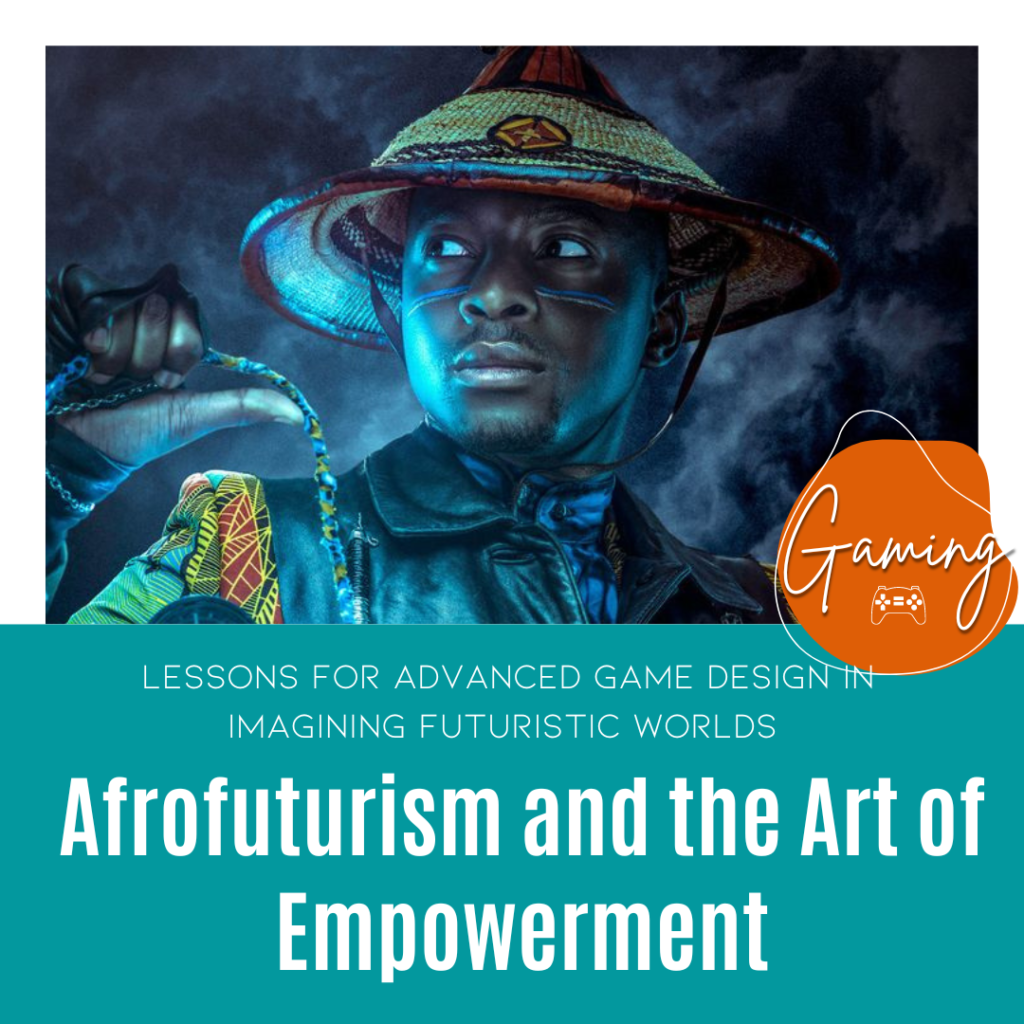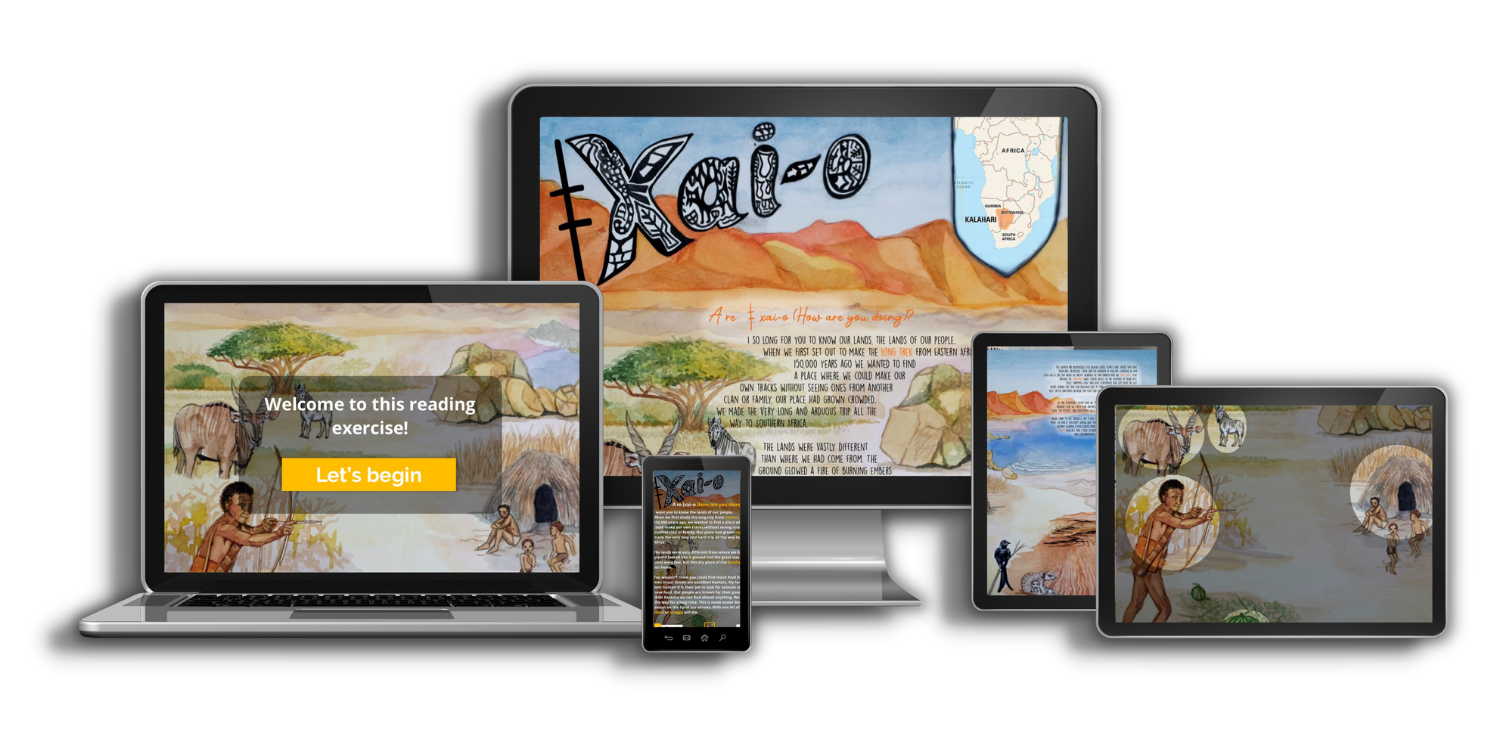Afrofuturism is a cultural movement that envisions a future where black and brown people can thrive and showcase their talents. In recent years, this movement has inspired many to create games and stories that empower young people of color. South Africa has a rich history of storytelling that has been passed down through generations, and now, these traditional stories are being revisited in a futuristic context to explore Afrofuturism. The film Black Panther, which showcased a futuristic African society that was both technologically advanced and culturally rich, has had a significant influence on this design approach. As we wrap up this semester on game and simulation design, it’s a good time to reflect on what we have learned and what we are most proud of. Additionally, we can think about what tools and strategies will be most helpful as we move forward in our quest to create engaging and impactful games for learning or other purposes. In this blog post, we will explore these topics in the context of Afrofuturism and how South African traditional stories, along with the influence of Black Panther, can guide us towards a brighter future for all.
As a Black designer working in the gaming industry, I know firsthand the significance of including Black and brown characters and narratives. Not seeing myself reflected in the media I devoured as a child inspired me to enter the gaming business and make games that celebrate and share the richness of the black experience. The dearth of positive representations of people like me in popular culture as I was growing up in a predominantly white nation severely challenged my sense of self. It made me feel unimportant, like no one cared about my background or my experiences. I hope that young black and brown people today do not grow up to share my experiences. I hope kids find representations of themselves in the things they play and watch.
When I’m creating anything, I often wonder how we might include the complete spectrum of Black identity and experience via art, story, and fashion. We are all different, yet our experiences as people of color have some common ground, and it is essential that this variety be recognized, celebrated, and disseminated. We can build deeper, more accurate depictions of the black experience that resonate with a wider spectrum of players if we incorporate a wide range of viewpoints and experiences.
One way I do this is by incorporating elements of Afrofuturism into my game designs. I am able to build thrilling new worlds that capture the beauty and complexity of the black experience by combining aspects of science fiction, fantasy, and history. I can disrupt canonical western narratives and make room for black-led ones by displaying technologically advanced designs with deep roots in Africa.
My search for South African educational games brought me to a study titled “Exploring video games and learning in South Africa: An integrative review.” This report offers a thoughtful evaluation of the condition of educational video games in South Africa right now. In light of the many obstacles confronted by the country’s education system, the writers explore the possibility of using video games to enhance educational achievements. Games like serious games and gamified learning platforms are discussed in detail, as are the benefits and drawbacks of each. The study emphasizes the significance of building games that are culturally suitable and relevant to the local environment, as well as the necessity for greater research into the efficacy of video games as a medium for learning in South Africa. This report is a wonderful resource for anyone interested in learning more about the potential of video games to improve learning outcomes in South Africa.
The incredible depth and variety of African culture has a significant impact on the identity of the African continent. Considering this cultural background is essential when making serious games for the African market. The games frequently incorporate elements of African mythology, music, dance, and language. In her dissertation, Dr. Rebecca Yvonne Bayeck emphasizes the need to consider players’ backgrounds and experiences while creating games, which is especially relevant for promoting digital literacy. Developers may create more meaningful experiences for users and foster stronger communities by drawing inspiration from African culture. This communal spirit is particularly important on a continent where modern conveniences might be scarce and where ancient customs are nonetheless held in high regard.
In addition, as a Black designer, I have a moral obligation to produce work that not only celebrates the rich diversity of the black experience but also combats the negative assumptions that have been widely held about black people. I hope that the games I design will help players learn about and celebrate the many facets of the black experience.
The value of games that feature characters of color cannot be understated. Today’s young people of color may experience a significant impact on their sense of self-worth and community if they see positive representations of themselves in well-known video games. Knowing that their stories and experiences are valued might encourage people to seek jobs in the field. Future generations will benefit from a more welcoming and egalitarian gaming industry if game developers embrace diversity and actively combat negative stereotypes in their work.
The most important thing I learned
This semester, I learned more than anything else about taking a game or simulation from concept through marketing and pitching. Going through it all on my own for the first time was challenging, but ultimately rewarding. I was able to improve my communication, project management, and self-motivation via this experience, all of which will serve me well in the future. Attempting to simplify difficult ideas was a significant struggle for me throughout the endeavor. I learned the value of utilizing simple language and visual aids like diagrams or sketches to convey my thoughts to teachers and others.
Keeping myself inspired and on task during the whole thing was also difficult. For me, the key to maintaining my concentration and motivation in the face of setbacks and unforeseen problems was having a well-thought-out strategy with realistic goals and deadlines. In addition, consulting with Dr. Oprean when I was feeling confused or overwhelmed aided me in gaining clarity and keeping me on course. Dr. Oprean’s advice and assistance were crucial at crucial points in the project.
What makes me proud?
When I think back on this semester, I am most pleased with the fact that I was able to leave my comfort zone entirely and achieve a long-held ambition of mine. As this is my first attempt at making something for public consumption, I had doubts about my ability to give form to my vision. Nonetheless, I am pleased with myself for consuming every resource provided for this course, as doing so forced me to expand my horizons and overcome previous limitations in my knowledge.
There were times when I was certain of the greatness of my notion, but there were other times when I was not. Also, as an introvert, I first struggled to talk to strangers about my ideas, but I practiced and eventually had numerous interactions with strangers about my notion or idea. I was pleasantly surprised to see that others could relate to what I was saying and provide insights from their own experience. Despite the initial challenge, I persisted and eventually produced something of which I am proud. This has shown me the importance of challenging myself to grow as a person and the power of perseverance to overcome adversity.
Moving forward
Looking back on the semester, I realize that the most useful thing I picked up was an appreciation for the need for teamwork and open dialogue in the development of games and simulations. I understand the need for collaboration and clear communication when it comes to completing assignments successfully (this is especially true when pitching your game—visuals, short, and to the point). Being open to criticism and collaborating to find novel approaches to problems are essential. I’ve also learned that in a sector as dynamic as game and simulation creation, it’s crucial to be open-minded and eager to explore new ideas. I now see that being organized and having a good grasp of project management abilities aided my ability to stick to my goals and deadlines.
Having a clear vision and seeking the help of others whose knowledge I may lack are two more skills I’ve honed through experience and education. This semester, I realized that it’s alright for me to have weaknesses in certain areas of game and simulation creation. I can create creative and interesting works that appeal to a wide audience by being aware of my limitations and collaborating with people who can complement my strengths. I can make sure the final output is successful and interesting by first getting a firm grasp on the project’s goals and intended audience. For the rest of my career as a game and simulation designer, I plan to hone my talents in the following areas: communication; cooperation; vision; and utilizing the skills of others.





